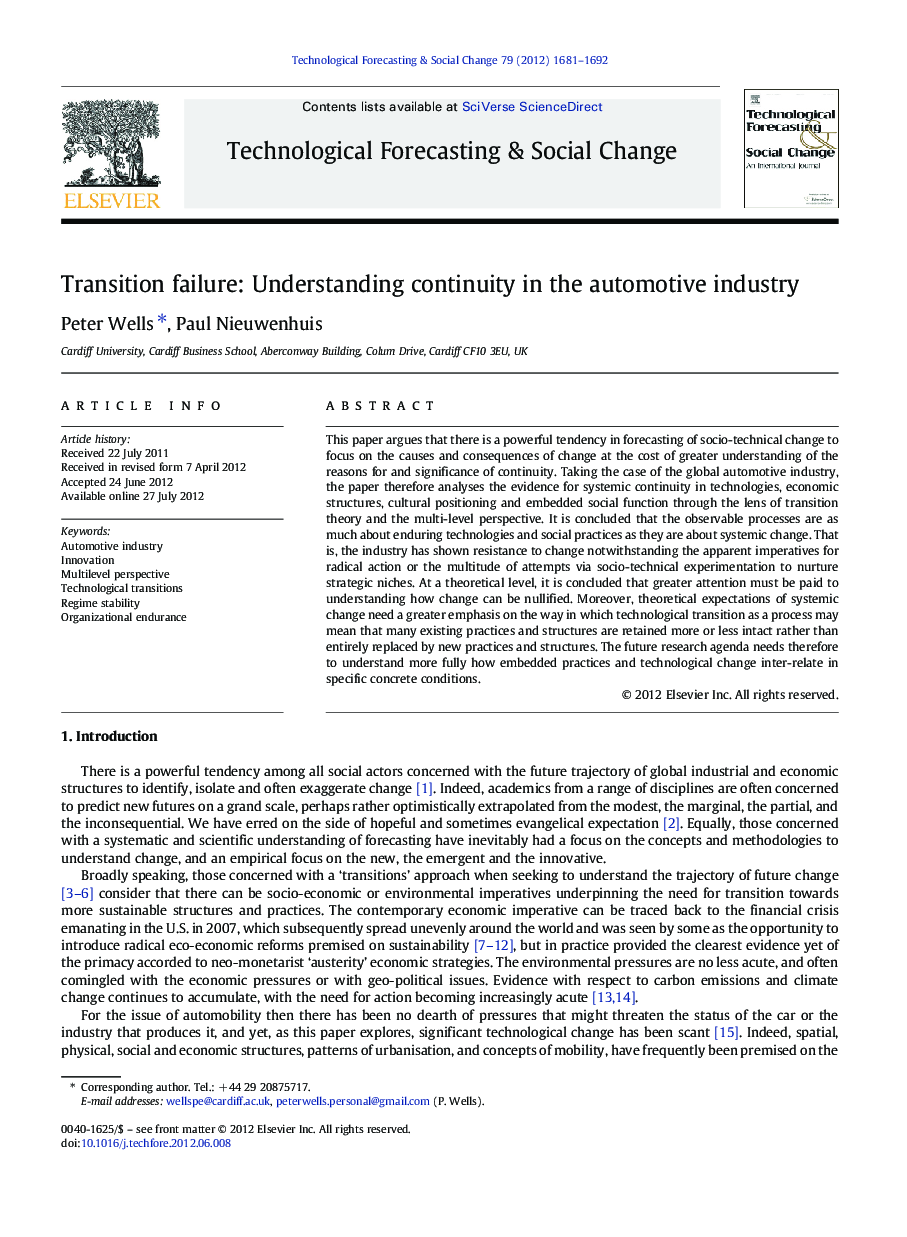| Article ID | Journal | Published Year | Pages | File Type |
|---|---|---|---|---|
| 896657 | Technological Forecasting and Social Change | 2012 | 12 Pages |
This paper argues that there is a powerful tendency in forecasting of socio-technical change to focus on the causes and consequences of change at the cost of greater understanding of the reasons for and significance of continuity. Taking the case of the global automotive industry, the paper therefore analyses the evidence for systemic continuity in technologies, economic structures, cultural positioning and embedded social function through the lens of transition theory and the multi-level perspective. It is concluded that the observable processes are as much about enduring technologies and social practices as they are about systemic change. That is, the industry has shown resistance to change notwithstanding the apparent imperatives for radical action or the multitude of attempts via socio-technical experimentation to nurture strategic niches. At a theoretical level, it is concluded that greater attention must be paid to understanding how change can be nullified. Moreover, theoretical expectations of systemic change need a greater emphasis on the way in which technological transition as a process may mean that many existing practices and structures are retained more or less intact rather than entirely replaced by new practices and structures. The future research agenda needs therefore to understand more fully how embedded practices and technological change inter-relate in specific concrete conditions.
► The paper identifies an urgent need to understand non-change. ► Six mechanisms for regime stability are identified. ► Questions whether technological change brings organizational change ► Core technologies and business models may be retained.
